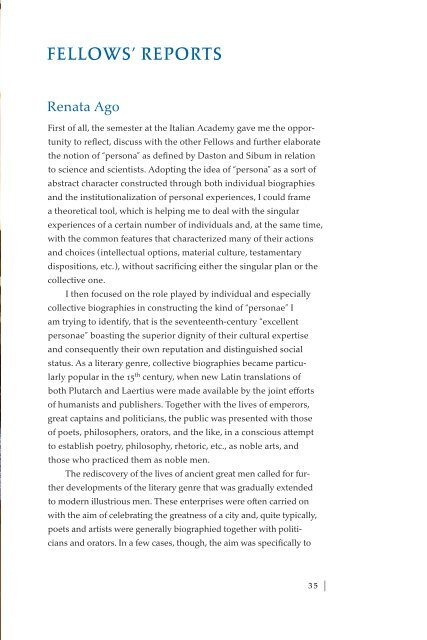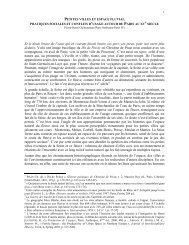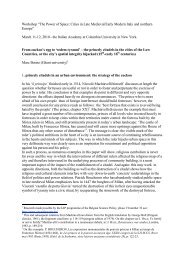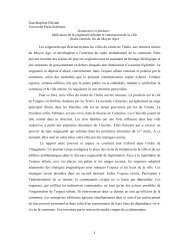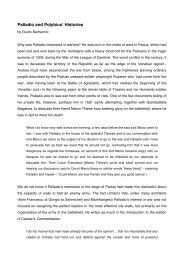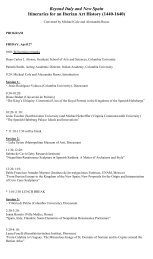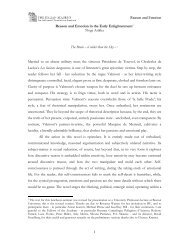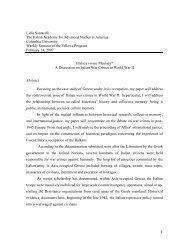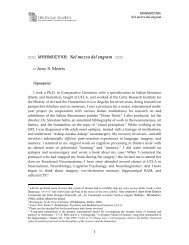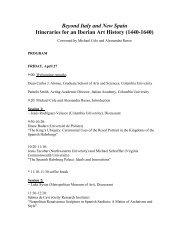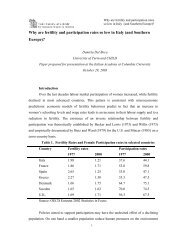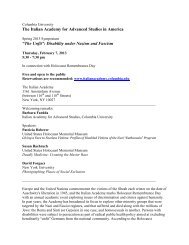2011-2012 - The Italian Academy - Columbia University
2011-2012 - The Italian Academy - Columbia University
2011-2012 - The Italian Academy - Columbia University
You also want an ePaper? Increase the reach of your titles
YUMPU automatically turns print PDFs into web optimized ePapers that Google loves.
Fellows’ Reports<br />
Renata Ago<br />
First of all, the semester at the <strong>Italian</strong> <strong>Academy</strong> gave me the opportunity<br />
to reflect, discuss with the other Fellows and further elaborate<br />
the notion of “persona” as defined by Daston and Sibum in relation<br />
to science and scientists. Adopting the idea of “persona” as a sort of<br />
abstract character constructed through both individual biographies<br />
and the institutionalization of personal experiences, I could frame<br />
a theoretical tool, which is helping me to deal with the singular<br />
experiences of a certain number of individuals and, at the same time,<br />
with the common features that characterized many of their actions<br />
and choices (intellectual options, material culture, testamentary<br />
dispositions, etc.), without sacrificing either the singular plan or the<br />
collective one.<br />
I then focused on the role played by individual and especially<br />
collective biographies in constructing the kind of “personae” I<br />
am trying to identify, that is the seventeenth-century “excellent<br />
personae” boasting the superior dignity of their cultural expertise<br />
and consequently their own reputation and distinguished social<br />
status. As a literary genre, collective biographies became particularly<br />
popular in the 15 th century, when new Latin translations of<br />
both Plutarch and Laertius were made available by the joint efforts<br />
of humanists and publishers. Together with the lives of emperors,<br />
great captains and politicians, the public was presented with those<br />
of poets, philosophers, orators, and the like, in a conscious attempt<br />
to establish poetry, philosophy, rhetoric, etc., as noble arts, and<br />
those who practiced them as noble men.<br />
<strong>The</strong> rediscovery of the lives of ancient great men called for further<br />
developments of the literary genre that was gradually extended<br />
to modern illustrious men. <strong>The</strong>se enterprises were often carried on<br />
with the aim of celebrating the greatness of a city and, quite typically,<br />
poets and artists were generally biographied together with politicians<br />
and orators. In a few cases, though, the aim was specifically to<br />
35 |


